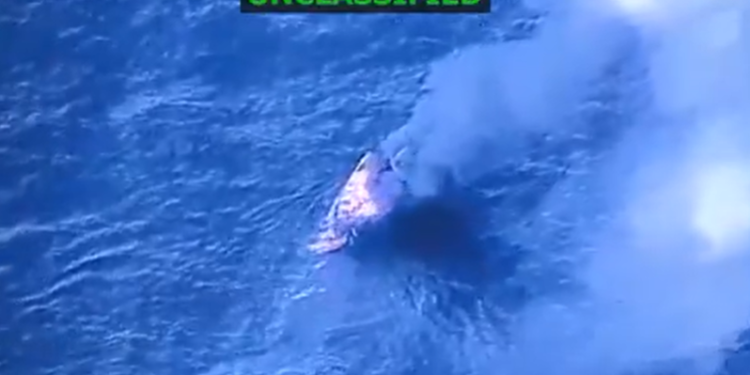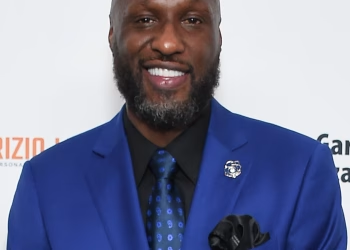Washington — Senate Democrats plan to force a vote Wednesday under the War Powers Act aimed at blocking continued U.S. strikes on suspected boats carrying drugs off the coast of Venezuela.
The resolution, led by Senators Adam Schiff of California and Tim Kaine of Virginia, would prevent the U.S. military from engaging in hostilities with “any non-state organization engaged in the promotion, trafficking, and distribution of illegal drugs and other related activities” without authorization from Congress.
“Congress did not authorize the use of force in this manner,” Schiff said Wednesday, saying the strikes risked escalating into full-blown conflict with Venezuela. “I think it’s clearly unconstitutional.”
The strikes in the Caribbean Sea have drawn a bipartisan backlash, with lawmakers questioning their legality. Congress, which has the sole power under the Constitution to declare war, has not authorized the use of military force against drug cartels.
The Trump administration says it has carried out four strikes against suspected drug-trafficking boats near Venezuela since September 2, killing at least 21 people.
In a notification In Congress after the second strike in mid-September, the Trump administration declared that the United States was engaged in a “non-international armed conflict” with drug cartels that it designated as terrorist organizations. Drugs smuggled by these cartels kill tens of thousands of Americans each year and constitute an “armed attack” on American citizens, according to the White House.
The Trump administration has designated several cartels and drug gangs as terrorist organizations, including Tren de Aragua in Venezuela, the Sinaloa Cartel in Mexico, and MS-13 in El Salvador.
Secretary of State Marco Rubio, who was at the Capitol on Wednesday to meet with Senate Republicans, told reporters that the president has the authority to order strikes without authorization from Congress.
“These are targeted strikes against imminent threats to the United States,” he said.
Regarding claims that the United States was acting in self-defense, David Janovsky, acting director of the Constitution Project, said: “The situation in the Caribbean is not that.”
The Democrats’ war powers resolution says the designation of drug cartels as foreign terrorist organizations “provides no legal authority to the President to use force against members of the designated organizations or against any foreign state.”
Kaine said the administration did not provide answers to lawmakers’ questions about the intelligence supporting the strikes, the legal justification for them or why the decision was made to attack the boats instead of intercepting them.
“The White House is not claiming that there is congressional authorization,” Kaine said. “These military actions should stop unless authorized by Congress – not stopped, period, permanently, forever, I can’t stop them – unless authorized by Congressional action.”
Under the War Powers Resolution of 1973, the president is required to consult with Congress before introducing armed forces into hostilities, unless there has been a declaration of war or other congressional authorization. If Congress does not authorize the use of the military, the president must withdraw his forces within 90 days. The law was enacted in response to the Vietnam War to control the president’s power to wage war without congressional consent.
Republican Sen. Rand Paul of Kentucky has been the Republican Party’s strongest critic of the strikes against alleged drug trafficking boats. After the first strike, Paul condemned Vice President JD Vance, who said that “killing the cartel members who are poisoning our citizens is the best use of our military.”
“What a despicable and thoughtless sentiment it is to glorify the murder of someone without a trial,” Paul wrote.
Paul underscored his view in a speech Wednesday, saying the strikes risked killing innocent people and that the administration had presented no evidence that the boats were carrying drugs.
“If someone gave a sense of justice, maybe those who are responsible for deciding who to kill could let us now give their names, present evidence of their guilt, evidence of their crimes,” Paul said. “Is it too much to ask to know the names of those we killed before we kill them? To know what the evidence is of their guilt? At the very least, the government should explain how this gang came to be labeled terrorists.”
Paul added: “The people who blow them into smithereens are also conveniently ignoring the fact that death is generally not the punishment for drug dealing. »
Similar efforts were made by Congress over the summer to reassert its authority and declare war as tensions escalated between Israel and Iran. The United States was directly involved in the 12-day war by bombing Iran’s nuclear facilities before Iran and Israel agreed to a ceasefire.
After the Iranian strikes, the Senate voted against a measure Kaine introduced days before the bombings to prevent President Trump from further use of military force against Iran.
“The situation in Iran was extremely time-limited,” Janovsky said. “The administration has made it very clear that it continues, and indeed has continued, to carry out these strikes in the Caribbean. So I think that certainly creates even greater urgency for Congress to act in some way in this matter.”
Schiff said Congress abdicated its responsibilities for declaring war because members did not want publicity on the issue. According to him, this sets a dangerous precedent.
“We are blowing up ships thousands of miles from our shores,” Schiff said. “What’s to stop another country from deciding that they’re going to use the same precedent to blow up ships thousands of miles from their shores, whether in the South China Sea or elsewhere, under the pretext that they’re engaged in some sort of trafficking and therefore taking action? I don’t think that’s a practice we want to see other countries adopt.”
Eleanor Watson and Cristina Corujo contributed to this report.









